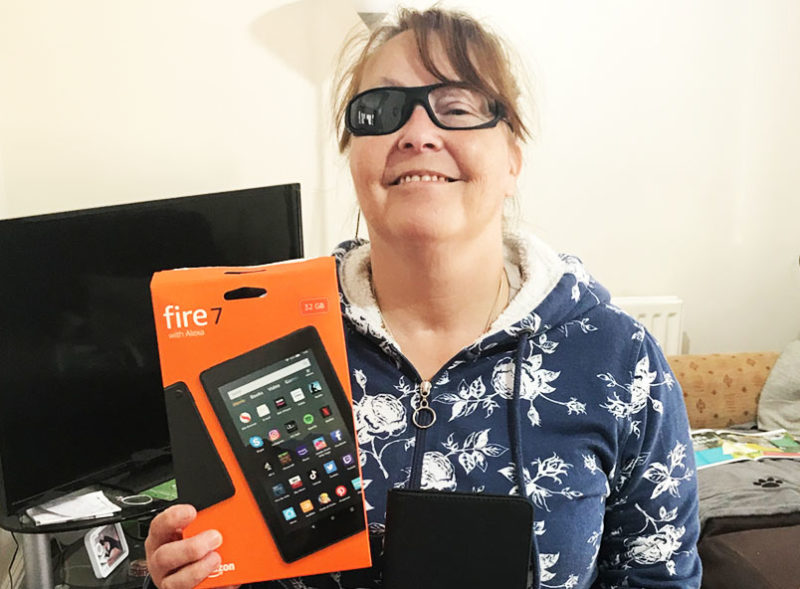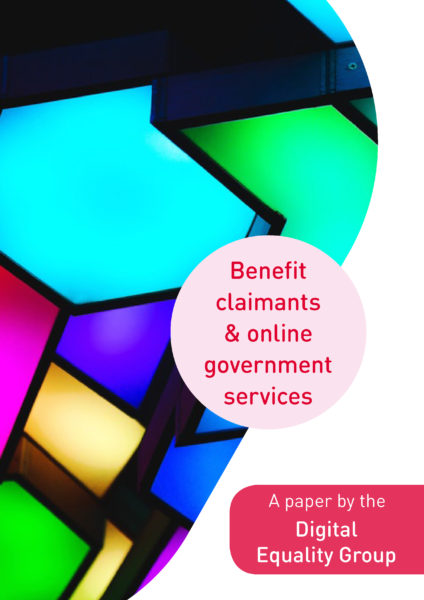Earlier this week, the Digital Equality Group co-ordinated by WaveLength, released a report looking at the experiences of benefit claimants using online government services. In this report, we highlighted how government’s Digital by Default strategy is continuing to exclude people. We recommended that as more government services are put online, then government should provide universal means-tested broadband for those who need it most.
Still in 2019, 4.1 million (8%) of UK adults remain offline.
Half of the people in this group live in low-income households. In a survey sponsored by DCMS, 40% of non-Internet users had incomes of less than £12,500, with financial constraints cited as one of the barriers to going online. Indeed, those who live alone are less likely to be connected to the Internet at home – despite being one of the groups who need it most to connect with family and friends, and access online government services, such as filing Universal Credit applications.
The provision of infrastructure is vital for bringing people together and increasing the digital capabilities of the workforce. Means-tested access to broadband would ensure that everyone has the ability to access the internet regardless of ability or financial background. This offer, financed by government, would crucially support people who are the most deprived and lonely.
“She was so excited to get up today and get her Internet sorted.”
We recently gave an Amazon Fire tablet to a lady called Shelley. 4 years ago, Shelley had a car accident, which left her with significant brain injury and the loss of sight in one of her eyes. Tragically, she lost her daughter in the car accident and her marriage subsequently broke down. Shelley’s life changed entirely, losing her previous support systems and facing life with new and significant health conditions.

Hazel, who referred Shelley to us, told us how she had seen an immediate change in Shelley since using her tablet:
She was so excited to get up today and get her Internet sorted, which means a lot. She was extremely pleased and excited at the prospect of being able to do so many things. I can’t tell you how pleased she was.
We continue our call for the next government to provide means-tested access to broadband for those who need it most.
This is just one of many stories we could share on how access to technology and broadband makes the world of difference to people who are lonely. A commitment to means-tested broadband provision is the vital next step for ensuring that the UK is leading in supporting some of the poorest groups to benefit from digital connectivity. As Prof Philip Alston, the UN Special rapporteur on extreme poverty and human rights noted in October 2019, technology should be used “to ensure a higher standard of living for the vulnerable and disadvantaged…that would be the real digital welfare state revolution”.
We continue our call for the next government to provide means-tested access to broadband for those who need it most. We look forward to engaging with other partners who’d like to support us in our campaign.
About WaveLength
WaveLength is the UK’s leading loneliness charity giving technology to those most in need. Since 1939, we’ve helped people living in the poorest communities to fight loneliness, by giving technology to individuals and organisations to help connect people to the world.
We help people who have poor physical and mental health, those who have previously been homeless or trafficked, or are survivors of domestic abuse.
Our unique experience as the oldest, and only, loneliness and technology charity gives us a range of perspectives on how some of the most vulnerable people in society use technology to make a positive difference to their lives.
Interested in what you’ve read? Have a conversation with us: give us a call or e-mail us.


